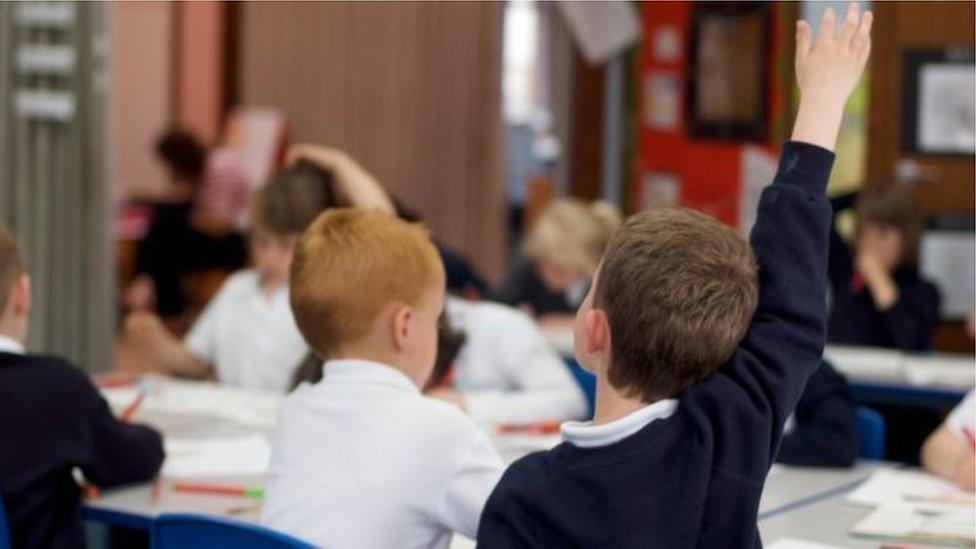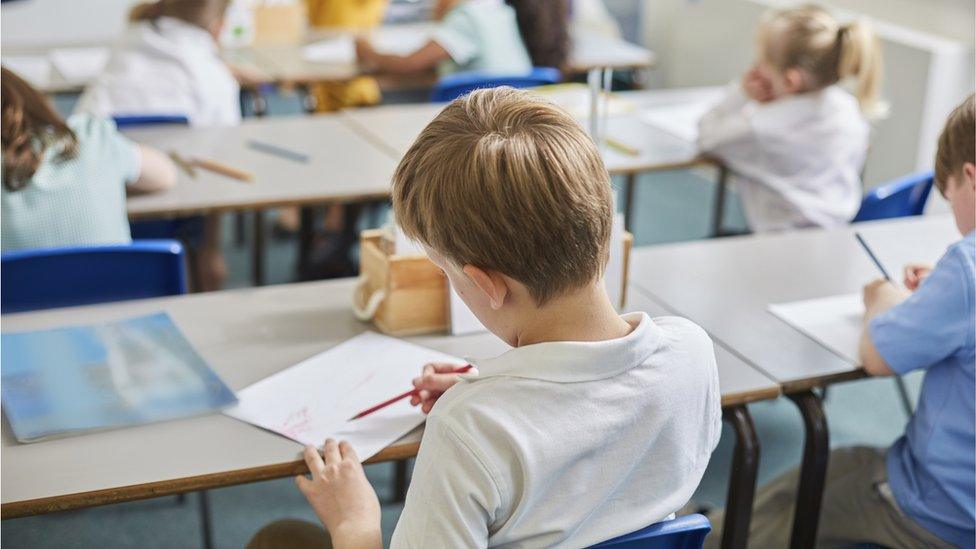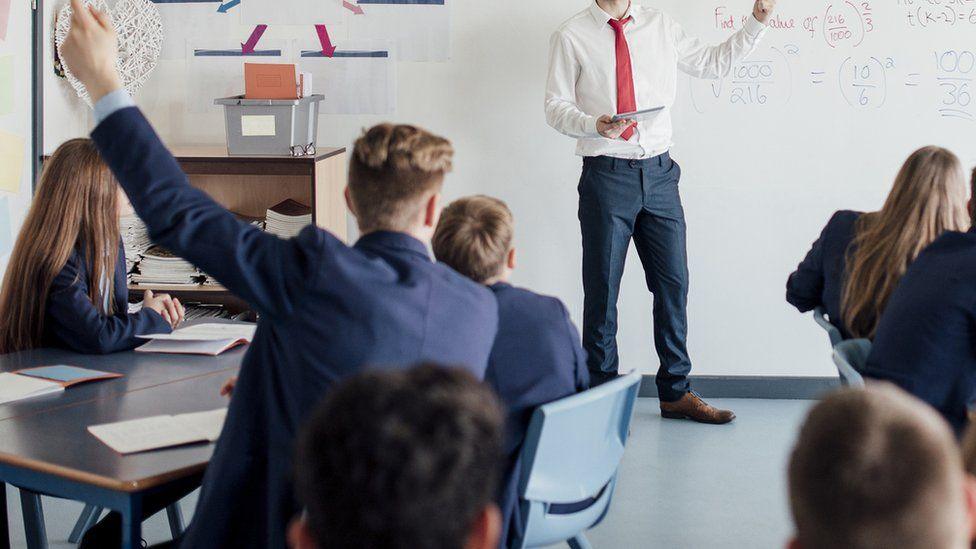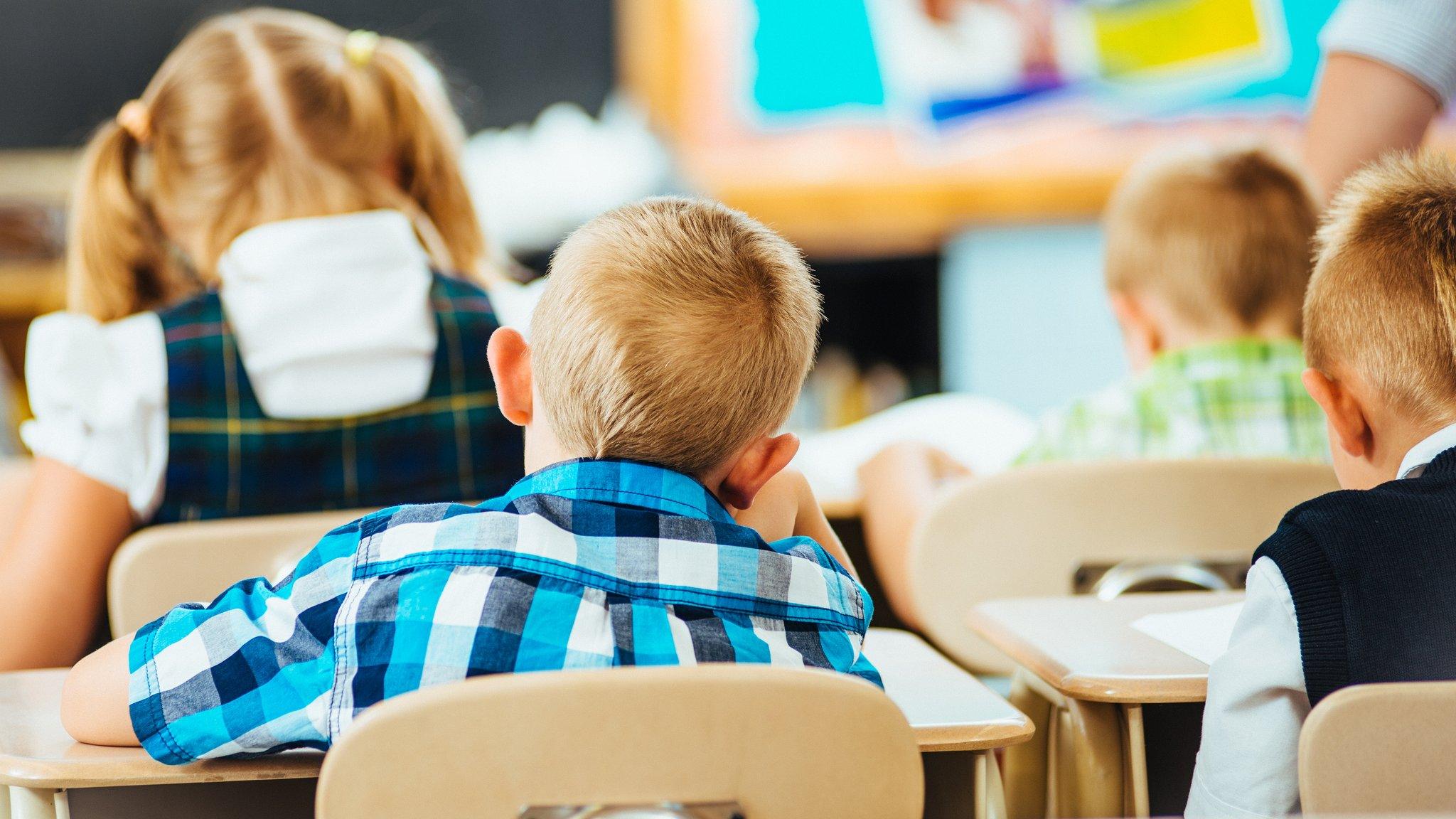Children who need specialist psychological help face fall in support
- Published

The Education Authority (EA) says schools will receive fewer visits from educational psychologists than they were expecting
Schools in Northern Ireland face a fall in support for children who need specialist psychological help.
The Education Authority (EA) has said schools will receive fewer visits from educational psychologists than they were expecting.
The authority blamed "significant pressures" on the Educational Psychology Service, and a "sharp increase in demand".
Prior to the pandemic, EA educational psychologists fell by almost a quarter.
There has been a significant rise in young people seeking help for mental health issues during the pandemic.
Health Minister Robin Swann also previously warned that referrals to mental health services were likely to rise significantly due to "the Covid-19 pandemic and restrictions to everyday life".
The National Association of Head Teachers (NAHT) said it was "extremely concerned" by the EA's move.

Educational psychologists support children with special educational needs (SEN)
Educational psychologists help pupils with a range of emotional, behavioural, learning and medical needs.
They particularly support children with special educational needs (SEN).
Schools can refer pupils for help but the number of children each school can refer for assessment to the Educational Psychology Service is limited.
In a letter, the EA said: "Unfortunately, at this current time, the Educational Psychology Service is unable to provide the same level of support this year as in previous years due to the unpredicted rise in referrals to the service at all stages of the code of practice.
"I fully understand that this action will cause disappointment and concern for you and for parents of children in your school."
The EA letter said educational psychologists would support as many young people as possible.

The number of children each school can refer for assessment to the Educational Psychology Service is limited
But the authority said the service faced "significant pressures, as a result of a sharp increase in demand (up by 25% compared to four years ago) and a reduction in the number of educational psychologists".
In 2020, the authority disclosed to the Northern Ireland commissioner for children and young people, Koulla Yiasouma, that the number of educational psychologists it employed had decreased by 24% in under five years - from 140 in 2015 to 106 in 2019.
In a statement, the NAHT said there had been an "historic failure to properly invest in this vital service".
"Many school leaders do not accept that the uplift in referrals was not foreseen, particularly when concerns about the capacity of the system have been so widely articulated in recent years," the Northern Ireland director of NAHT Dr Graham Gault said.
"NAHT suggests, therefore, that the warning that the Educational Psychology Service will not be able to meet demand is not the result of an increase in referrals, but, rather, the legacy of an historic failure to properly invest in this vital service for the scale of the demand.
"We wish to stress that this situation is not the fault of the psychologists, who we hold in high regard, recognising that they are currently managing unprecedented levels of workload."
'Working to address any impact on children'
The EA said referrals to the Educational Psychology Service had increased from just under 5,000 in 2017/18 to 6,230 in the 2020/21 academic year.
But the number of educational psychologists employed by the EA has fallen from 140 in 2015/16 to 90 in 2021/22.
The EA said that there would not be "a fixed reduction" in visits per school - but that "resources will be spread across Northern Ireland to ensure a level of equity".
"The EA is working to address the pressures and any impact on children and young people and have initiated a range of contingency measures, including recruiting additional staff, streamlining of processes and longer term transformation of services," the EA said.
The EA also said that the Education Psychology Service had received approval to recruit an additional 15 permanent psychology assistants and a further two temporary psychology assistants in 2022.
Related topics
- Published9 November 2021

- Published9 January 2022
